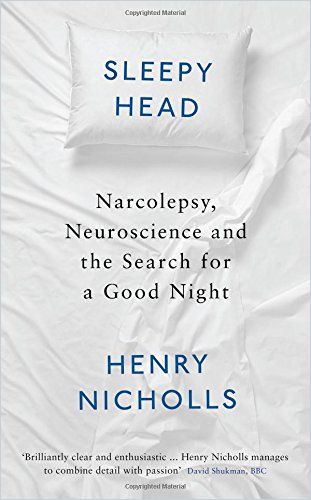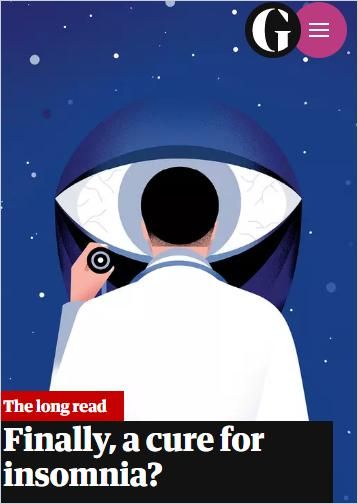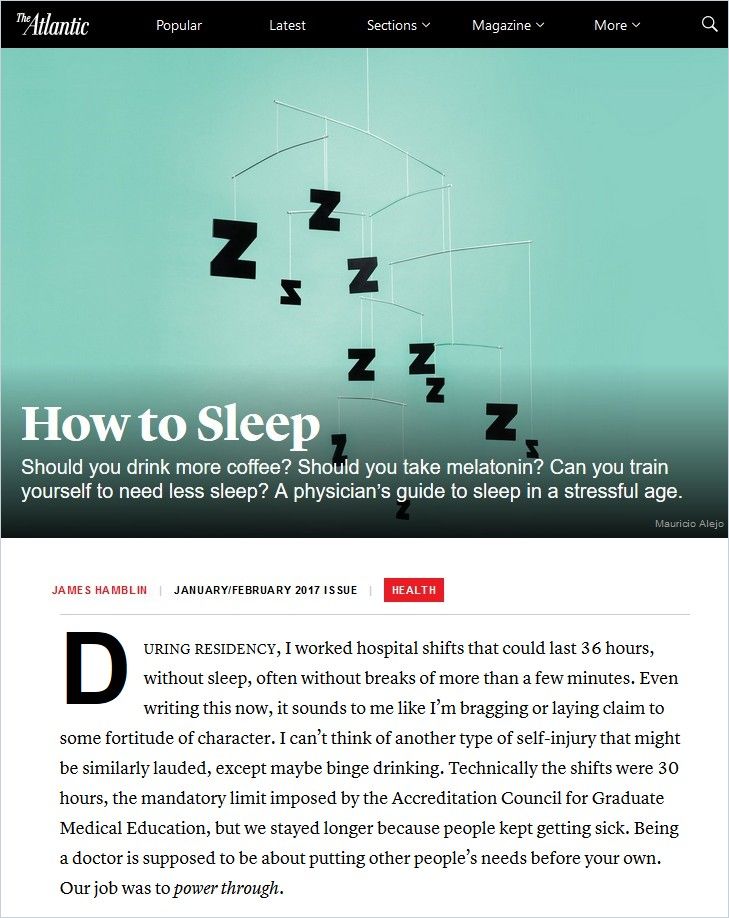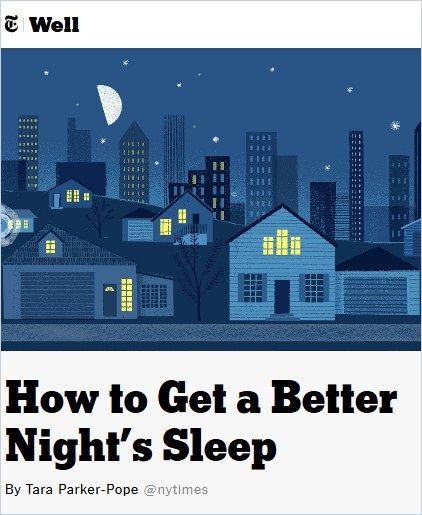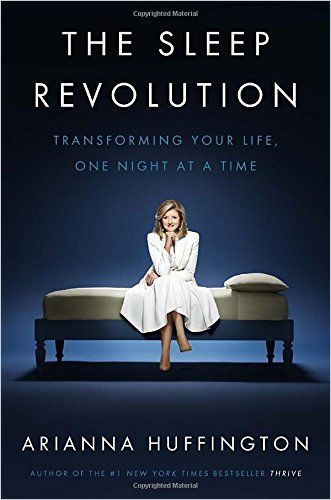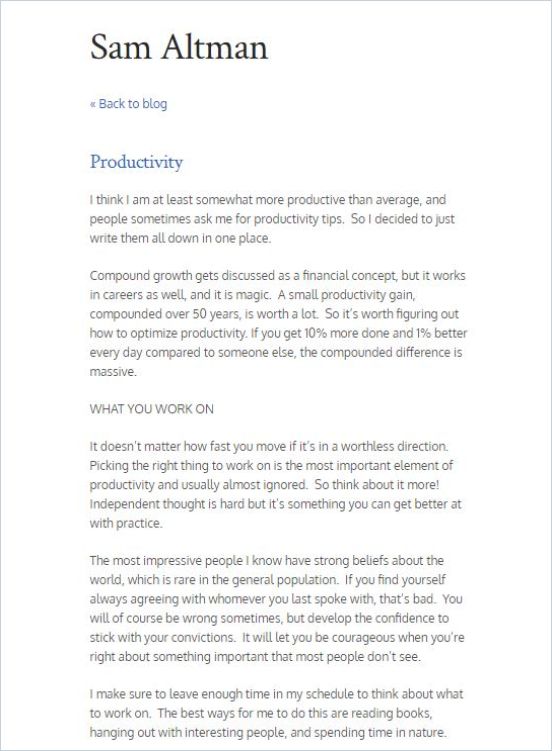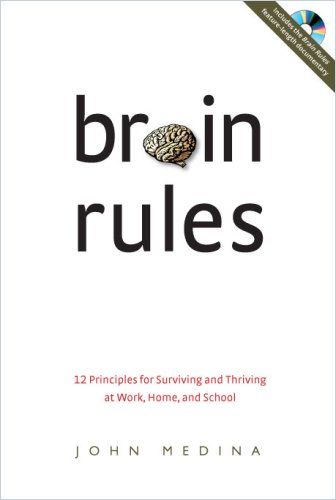How to Sleep

Until now, the good old saying was: Companies don’t pay you to sleep. But science counters this view, which is why companies should overcome this attitude. There are many convincing reasons to do more than just put a few apples on the conference tables in meetings or offer yoga lunch breaks to encourage staff to improve their health. No, a much simpler and often more efficient way to ensure morale, performance, happiness and health is to encourage colleagues to nap. Here’s why:
1. The Science of Sleep
Do you burn the candle at both ends? Modern life tends to demand nothing less, but lack of sleep takes a terrible toll on human health and well-being: Sleep isn’t only a chance for the body to rest; the brain also prepares itself for the next day.
If people shortchange themselves on sleep, they quickly become unhappy, unwell and unproductive.
For no cost at all, a good night’s sleep protects you from a vast array of nasty diseases and leaves you mentally and physically refreshed. Journalist Rachel Cooke vividly explains why we sleep – and what happens to us in the process.
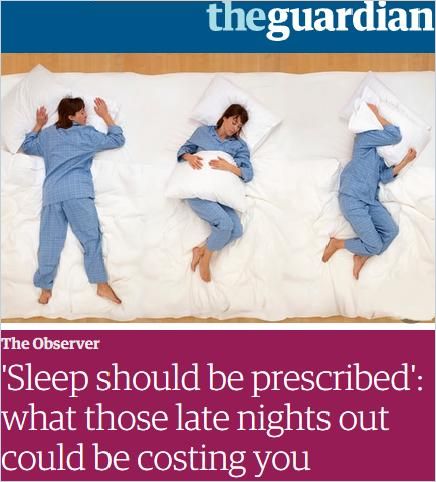
Getting high-quality sleep allows your brain to remove toxic proteins in your brain cells that otherwise compromise your ability to think and be creative. If that’s enough for you to understand what it’s all about, you can move on to point two. Anyone with an interest in sleep and neuroscience, or anyone who experiences difficulties with sleep, will find the following summaries compelling, too:
2. Good Sleep = Better Performance
If poor sleep is unhealthy, it can’t mean good news for your performance. Rob Newsom of the National Sleep Foundation explains the link between lack of sleep and diminished job performance. Sacrificing sleep to get more work done will not make you more productive. Rather, it will make you less focused, more prone to making mistakes and more irritable – thus jeopardizing your overall, long-term job performance.
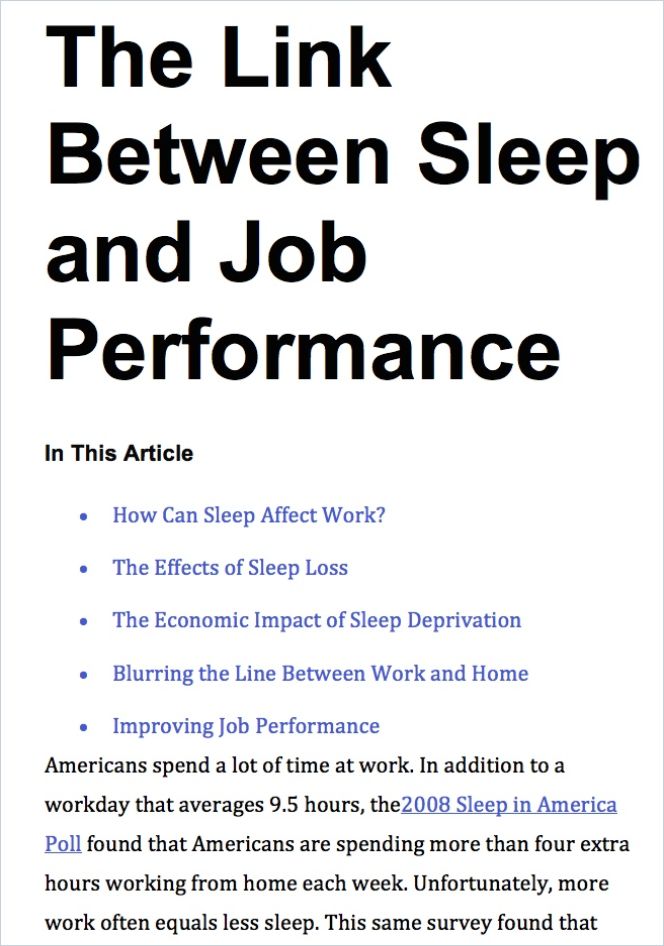
Newsom offers useful tips for workers to break the vicious cycle of sleep deprivation and overwork:
- Start with making sleep a priority – Make sure work, TV watching and socializing does not cut into your sleep time.
- Schedule a buffer period between work time and bedtime – This will allow you to mentally detach from work-related thoughts and worries.
- Practice good sleep hygiene – Keep a consistent bedtime and wake-up time, and establish a bedtime routine.
- Make changes during the day – If certain daytime activities make it hard for you to unwind at night, find ways to modify them.
- Avoid eating or drinking heavily just before bedtime – Too much sugar, coffee or tea – and, of course, all the other well-known wakefulness stimulants – keep the body and mind on the go, but no one who likes to sleep can want that before bedtime.
- Artificial light in the bedroom, no matter how dim, can negatively affect your sleep – Digital alarm clocks, chargers with LED display or night lights have deprived many an adult of sleep.
- What if these measures fail to improve your sleep? – Consult a doctor or sleep specialist for more personalized advice.
In fact, problems with sleep often occur when extraordinary situations arise in one’s work and personal life – and one’s mind becomes preoccupied with worries and problem-solving instead of simply switching off.
Here are a few Journal articles and advice summaries that explain how to sleep better and why it’s so worthwhile.
However, there are also cases when we prevent ourselves from sleeping, even though doing so would be good for us. For example, late in the evening, before going to bed, you find yourself scrolling through those timelines on your smartphone for hours (again) and rummaging through your 50 favorite websites – and you don’t care that you keep yourself from sleeping without getting anything in return. Neuroscience buff Anne-Laure Le Cunff examines the root cause of this human foible and offers simple habits you can employ to improve your sleep and quality of life:
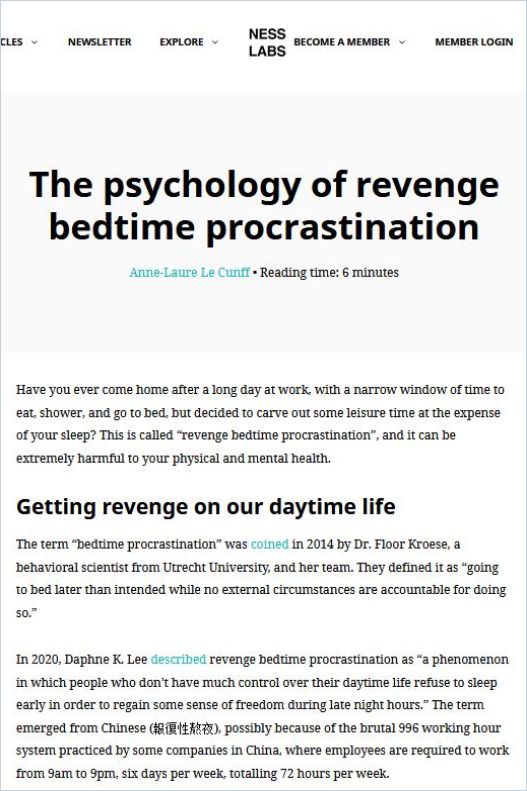
3. Bad Sleep = Worse Leadership
According to the Centers for Disease Control, nearly one-third of Americans get less than the seven to nine hours of sleep recommended for optimal health and well-being. Swiss sleep neuroscientist Els van der Helm cites studies indicating that leaders who don’t get enough sleep are less engaged, and employees perceive them as less inspiring.

If you notice the following difficulties, it’s time to get more sleep:
- You are facing unusual problems with concentration and focus.
- You suffer from slow reaction times.
- You are easily irritable.
- You struggle with impaired cognitive abilities (like short attention span and so-called microsleeps).
- You have difficulties with managing your emotions.
- Your decision-making abilities are not what they used to be.
Keep in mind: Chronic sleep loss increases your risk of obesity, cardiovascular diseases and cognitive decline, as well as anxiety and depression. This means that you can minimize the risk of getting seriously ill if you try to sleep more in response to the above signs.
4. Sleep Deprivation = Hotbed for Burnouts
Research also shows that sleep-deprived employees are more heavily affected by common workplace stressors. Diminished work performance, in turn, can exacerbate stress, which further decreases sleep quality, leading to a vicious cycle. If you want to stop this downward spiral, you can help yourself by following the agenda under point two.
If you want to contribute to the overall health management in your organization, it’s time to start an open conversation about sleep and its efforts to model good sleep behavior.
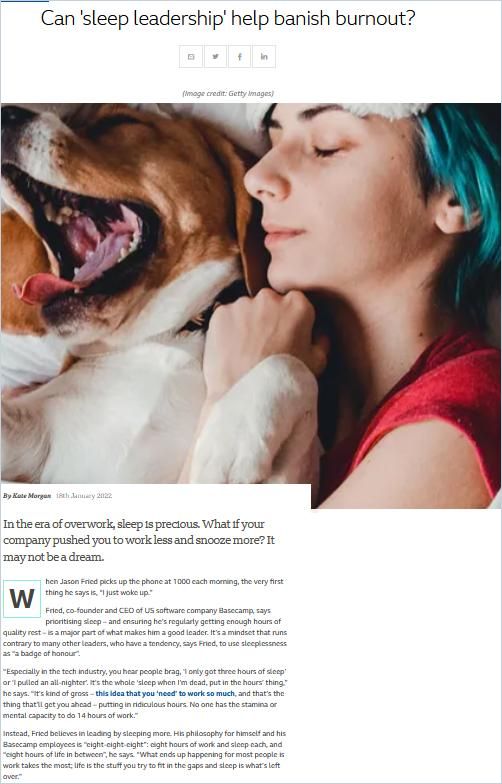
In general, it is a good idea to promote the following principles – and myth-busters – throughout the company by HR, C-level and management, and to offer assistance when employees are having trouble getting enough sleep:
- Get enough sleep at night.
- Get your night’s sleep all in one dose.
- You can’t make up sleep, so forget the myth that it’s OK to only sleep four to five hours on weeknights and then eight to 10 on weekends.
- Take a nap. You’re probably one of the millions of adults jealous of toddlers who get to nap every day. A good nap for an adult is between 20 and 30 minutes.
- If you nap for an hour or more, it will take you awhile to fully awaken and will disrupt your evening sleep pattern.
- Whether you fall asleep or just semi-doze, you’ll be better off for the rest.
5. The Advocates for Sleep
Science – all well and good, you think? But what if leaders and managers still don’t want to hear about it? Here are a few respected business thinkers that will make even the most obdurate CEO lose sleep.
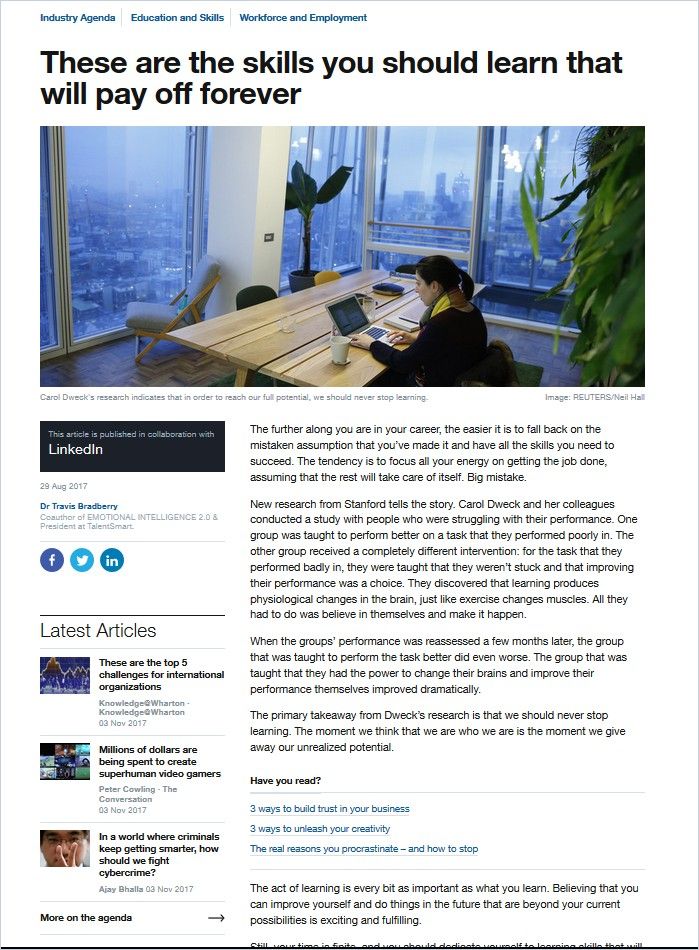
These Are the Skills You Should Learn That Will Pay Off Forever
World Economic Forum Read SummaryAt this point, we now wish you nothing more than a deep, healthy sleep – and sweet dreams!

